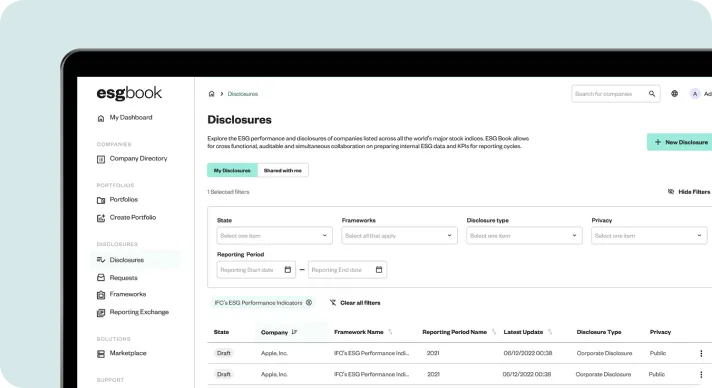Consultation Response by ESG Book to UK Sustainability Reporting Standards & Transition Plan Requirements

The UK’s twin consultations on UK Sustainability Reporting Standards (UK SRS) and the government’s Transition Plan requirements show how the country is shaping a next-generation ESG disclosure regime. While both aim to drive transparent, decision-useful reporting, they differ in focus: UK SRS sets the baseline for sustainability disclosure across all sectors, whereas the Transition Plan consultation hones in on credible net-zero strategies.
1. UK SRS
A Principles-Based Baseline for Sustainability Reporting
Key Takeaways & Supportive Points
- Timely, integrated disclosure: Backing the removal of a one-year “transition relief,” respondents stressed that UK firms are already familiar with TCFD reporting and can integrate sustainability data with financial statements without delay.
- Flexibility where it matters: Support emerged for removing mandatory references to specific taxonomies (e.g., GICS, SASB), promoting a principles-based approach while maintaining international alignment with ISSB standards.
- Investor relevance: Agreed that transparent reporting on financed emissions, carbon credit use, and broader ESG risks (biodiversity, water, supply chains) improves capital allocation and market confidence.
Areas of Concern & Recommendations
- Scope 3 and financed emissions: Data gaps and comparability issues remain. The government should provide stronger guidance, sector-specific methodologies (e.g., PCAF, GFANZ), and digital data platforms to simplify data collection.
- Scenario analysis complexity: Preparers need practical, UK-specific tools and templates for applying climate scenarios and reconciling them with financial statements.
- SME readiness: Training, grants, and simplified reporting templates will be essential to avoid leaving smaller firms behind.
2. Transition Plan Requirements
Making Net-Zero Strategy Credible
Key Takeaways & Supportive Points
- Strategic value creation: Transition planning is more than compliance - it drives competitiveness, attracts capital, and lowers financing and insurance costs.
- Investor and market demand: Standardised transition disclosures help investors price risk, channel capital, and guard against greenwashing.
- Broader economic benefit: Aggregated transition plans can guide national infrastructure investments, support job creation, and enhance macroeconomic resilience.
Areas of Concern & Recommendations
- Cost and capacity hurdles: Robust plans require extensive data (including Scope 3), scenario modelling, and capital-expenditure mapping - challenging for SMEs and hard-to-abate sectors.
- Comparability gaps: Without a mandatory template or minimum disclosure requirements, plans may lack consistency.
- Balance between ambition and liability: Mandating implementation or strict net-zero alignment creates legal and operational risks if external enablers (grid capacity, technology rollout) lag.
Suggested Enhancements
- Introduce a structured transition-plan annex covering targets, CapEx, financing, and governance.
- Strengthen Scope 3 and supplier-engagement disclosures.
- Provide standard scenario baselines for comparability and phased assurance for key metrics.
- For adaptation, require reporting on asset-level exposures, costs, and contingency triggers to capture climate-resilience planning.
Closing Thought
At ESG Book, we view the UK’s focus on robust sustainability reporting (UK SRS) and credible transition planning as a natural progression of global ESG disclosure and a constructive step for businesses seeking stronger strategies and improved access to capital. By coupling rigorous, ISSB-aligned reporting with finance-ready transition plans, the UK is setting a high standard for transparent and forward-looking sustainability practices. Companies that integrate these requirements into their strategy, finance, and supply chains can enhance resilience and competitiveness while meeting evolving regulatory expectations.
Visit esgbook.com for more information.



